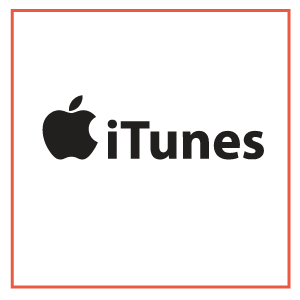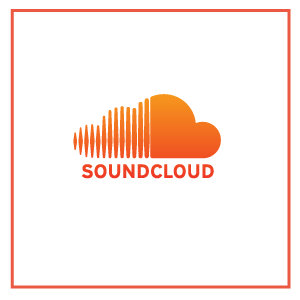Episode 1: Brisbane Website Design
ALSO LISTEN ON
READ THE TRANSCRIPT OF EPISODE 1 BELOW
[00:00:00] Saul: Hi everybody and welcome to the Web Design Brisbane Podcast. This is episode number one, and today's episode is entitled Brisbane Website Design. My name is Saul Edmonds, and as usual, I'm joined by the lovely Gillian Smith
[00:00:11] Gillian: Good morning , Saul. Hello, everybody.
[00:00:13] Saul: Hello, we are the co-founders and creative directors of Roundhouse, the creative agency, a local business with a passion for helping our clients grow. Over to you, Gill.
[00:00:22] Gillian: Okay, thanks saul. Well, in today's episode, we'll be chatting about website design, specifically for those small business owners and entrepreneurs who live in Brisbane, Australia, and always to work with a local website designer.
[00:00:35] Saul: Okay, so what are today's topics, Gill?
[00:00:37] Gillian: Well, today will give some tips to help people understand a little more about website design, plus some suggestions on how to find a trusted and experienced web designer in Brisbane.
[00:00:48] Saul: Okay, let's get started.
[00:00:50] Gillian: Okay, well, this might be your first website, or you might be looking for a website redesign or refresh. So whatever your business or business model, the key purpose of your website is to represent your business effectively. Also, you want to connect with your target audience and convert leads into customers. You may also want your website to be on the first page of Google searches, as this is a great way to drive targeted traffic for no additional cost.
[00:01:15] Saul: Yeah, exactly. So where are we going to start?
[00:01:17] Gillian: Okay, well, let's get to know a little more about website design. And exactly what is it that makes a great website? Great. Okay, well, I guess the first tip that we have here is simple is best.
[00:01:29] Saul: Yeah. So when we're saying simple, one of the elements we're talking about is, of course design, but also simple in your approach to thinking about your website, too. So every good website, from our point of view, the only way should be strategic at one level or another, meaning that you're going to get to the cracks in a nice, simple, straightforward sort of way, about what your website needs to be conveying to people. What your target audiences? So also just having a simple, straightforward strategy.
[00:02:03] Gillian: Okay. Well, I guess that brings us to our second point, which is branding, You want consistency in branding throughout?
[00:02:09] Saul: Yeah, so I think everyone would probably agree that consistency throughout everything is really good, and that's no different for your brand, and of course, your website, that is one of the key components of your brand online and generally for your business.
[00:02:26] Gillian: And you want to make sure it's easy to navigate.
[00:02:28] Saul: Yeah, that's right. So you've got easy navigation for most websites is a bit of a no brainer. It's not that hard to create a navigation bar, the more moving parts you've got in a website, the more important it is for people to be able to find what they need to get to easily and in an intuitive sort of way.
[00:02:50] Gillian: So if you're in the process of getting your website designed, you want to test it really, from your customers point of view, just pretend for a moment that your customer, see how you can easily navigate between the sides, if it really comes together for you. Well, the next one is, and it is really an absolute it has to be mobile friendly, doesn't it?
[00:03:09] Saul: Yeah, all websites these days are generally responsive, meaning that your site's content will adapt and change to the screen that it's being viewed on, and that's especially important and true for smartphones. Everyone has a smartphone, and so therefore, it needs to be friendly on that device in particular, mainly, meaning that it's easy to read, and things don't look at applies when you're looking at it on your smartphone.
[00:03:43] Gillian: Okay, well, if you're in the process of creating a great website, for your small business, a really key element is prominent calls to action.
[00:03:50] Saul: Yeah, calls to action, really just being
[00:03:53] Gillian: What is a call to action, Saul?
[00:03:55] Saul: Okay, so if you hear the word CTA calls to action, or call to action, and that really just means that you're asking people to do something specific on your websites that might be Book now, Call now, or do anything in particular that you want them to do, and there's no point in assuming that, that they'll know that you should ask them, and you can do it in a non-salesy kind of way that fits in well with your brand too.
[00:04:21] Gillian: It's got to stand out visually as well.
[00:04:23] Saul: Yeah, that's right. It doesn't, it can look right, there's no need for it to be overly salesy like what you said, it can still fit in just fine with everything else that you're doing on the side,
[00:04:36] Gillian: Just aim to help your customers find their way around and take action when they need to.
[00:04:41] Saul: Yeah, well. you can usually safely assume that somebody is already there, because they're wanting your services, then and now, or they're at least interested so that's a safe assumption to make so therefore, you're helping them get to where potentially want to go?
[00:05:02] Gillian: Well, that also brings in the most key elements, I guess off the website is that it must engage your users, engage your audience, engage your customers?
[00:05:10] Saul: Yeah. So you hear that term a lot. You hear engagement all the time so what does that actually mean? That means pretty much what it says that people engaged and interested in the content that's on your side and that's where good content is obviously very important but that's enhanced by good design, and wise to move through that content in a really intuitive, user friendly, sort of why.
[00:05:37] Gillian: And the next one really gets down to the website build, you want to make sure that your pages load quickly.
[00:05:43] Saul: Yeah, exactly. There's just generally for the user experience, no one wants to wait for a slow loading website. It's obviously improved a lot in more recent years with the improvement in broadband and general internet social speeds, overall but that's also driven an expectation from people to have everything more quickly, because people are watching more video content, and more things that take longer to load, but they're happening more quickly so that's driven more of an expectation for everything to load quickly. And they should anyway, I think should load fast.
[00:06:22] Gillian: So that brings us on to our final point here. And that is SEO, Search Engine Optimization and search visibility. It really begins right at the start of your website and is integrated into your website build isn't it, Saul?
[00:06:36] Saul: Yeah, that's right. So the way you build anything like if you're going to be fine tuning a car, for performance, for example, it's going to drive better, it would still be able to drive, but it's going to not drive quite so roughly ,too. And that's the case with your website as well. It'll still be out there and people can see it. But it's going to be more visible and be more optimized and perform better when it comes to when search engines see it when they come and search your website and crawler for information. Your website, if it's built in the right way will make it easier for search engines to find what they need.
[00:07:15] Gillian: So that really gets back to keywords, and again, it ties back into understanding your audience like, how does your audience find you? What keywords will they be entering? How can you optimize your site to dovetail into those keywords in the best way possible? Okay, well, now we're just going to go on to look at if you're in Brisbane, what is some, why so that you can find the right web designer to partner with you for the long term?
[00:07:42] Saul: Okay, so doing a local search, obviously, like the key thing is, everyone's using Google or other search engines, mainly Google, though, to search for what they want, and many of those searches are local searches so once you get to find somebody, or a group of different people that you want to have a look at, and sort of see what their work is like, it's a really great idea to review their portfolios, obviously, first, apart from the other things that come along with people's research, but looking at the actual work they've done is a really key thing.
[00:08:15] Gillian: And what about people's professional network, other people in your industry? Do you touch base with him and see how their web experiences have been?
[00:08:22] Saul: Yeah, of course. I mean, that's word of mouth and hearing what your friends or business colleagues have to say, is, of course, something that everybody should do and does do all the time. That's like, really the first port of call, but people that they know and trust, because they're going to give them an honest opinion about that, but apart from that, that's it for today, guys, thanks so much for listening. Before we go. Please don't forget to rate review and subscribe to this podcast. We'd love to hear your feedback. Also, if you'd like to read the transcript of this episode, please visit our website at roundhouse.cc/web-design. We're on a journey to help local Brisbane businesses grow their opportunities online and exceed their goals. Thanks for listening and we'll see you tomorrow. Bye
[00:09:11] Gillian: Bye, guys.








